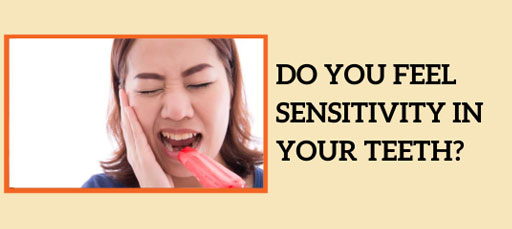
Do you feel sensitivity in your teeth?
Do you wince in pain when you indulge in your favorite ice cream or take a sip of hot coffee? Does brushing your teeth sometimes feel like a daunting task due to sharp sensations? If so, you might be experiencing sensitive teeth. This discomfort can interfere with daily activities and impact your overall dental health. In this comprehensive guide, we’ll delve into the symptoms, causes, and effective treatments for sensitive teeth.
Sensitive Teeth Symptoms
Sensitive teeth often manifest as a sharp, sudden pain or discomfort in one or more teeth when exposed to certain stimuli. Common triggers include:
- Temperature Changes: Hot or cold foods and beverages.
- Sweet or Sour Foods: Consuming sweets or acidic items.
- Touch or Pressure: Brushing, flossing, or biting down on food.
Sensitive Teeth Causes
Several factors contribute to tooth sensitivity:
- Worn Tooth Enamel: Due to aggressive brushing, acidic foods, or tooth grinding (bruxism).
- Gum Recession: Exposing the tooth’s sensitive root surface.
- Tooth Decay or Cavities: Enabling access to nerves within the tooth.
- Dental Procedures: Recent treatments like fillings, crowns, or teeth whitening.
Sensitive Teeth Treatment
1. Dental Check-Up:
Schedule an appointment with your dentist to identify the underlying cause of sensitivity. A thorough examination helps determine the best course of action.
2. Desensitizing Toothpaste:
Use specially formulated toothpaste designed to reduce sensitivity. These contain compounds that help block nerve signals in the teeth.
3. Soft-Bristled Toothbrush:
Opt for a soft-bristled toothbrush to prevent further enamel wear. Gentle brushing techniques can also alleviate sensitivity.
4. Fluoride Application:
Professional fluoride treatments help strengthen tooth enamel, reducing sensitivity.
5. Dental Sealants or Bonding:
For exposed root surfaces or worn enamel, your dentist might recommend applying a sealant or bonding material to protect the sensitive areas.
6. Mouthguard for Bruxism:
If teeth grinding contributes to sensitivity, a custom-made mouthguard can prevent further damage.
7. Dietary Changes:
Limit acidic foods and beverages that can erode tooth enamel, contributing to sensitivity.
8. Surgical Treatments:
In severe cases, surgical options like gum grafting or root canal therapy may be necessary to address extensive damage or exposed nerves.
Preventive Measures
Preventing tooth sensitivity involves maintaining good oral hygiene practices:
- Regular Brushing and Flossing: Clean your teeth twice daily using fluoride toothpaste and floss to remove plaque buildup.
- Gentle Brushing Technique: Avoid aggressive brushing that can wear down enamel and irritate gums.
- Balanced Diet: Consume a balanced diet low in acidic and sugary foods to preserve tooth enamel.
- Routine Dental Check-Ups: Visit your dentist regularly for check-ups and cleanings to catch and address any issues early on.
Conclusion
Sensitive teeth can significantly impact your quality of life, but effective treatments and preventive measures can alleviate discomfort and restore dental health. Consulting with a dental professional is crucial to accurately diagnose the cause of sensitivity and determine the most suitable treatment plan for your specific needs. By adopting good oral hygiene habits and seeking timely dental care, you can enjoy your favorite foods and beverages without the fear of tooth pain.
Remember, maintaining a healthy smile goes beyond aesthetics—it’s key to overall well-being!
Leave a Reply
Leave a Reply
Explore More Similar Posts
Explore More Blogs


Leave a Reply